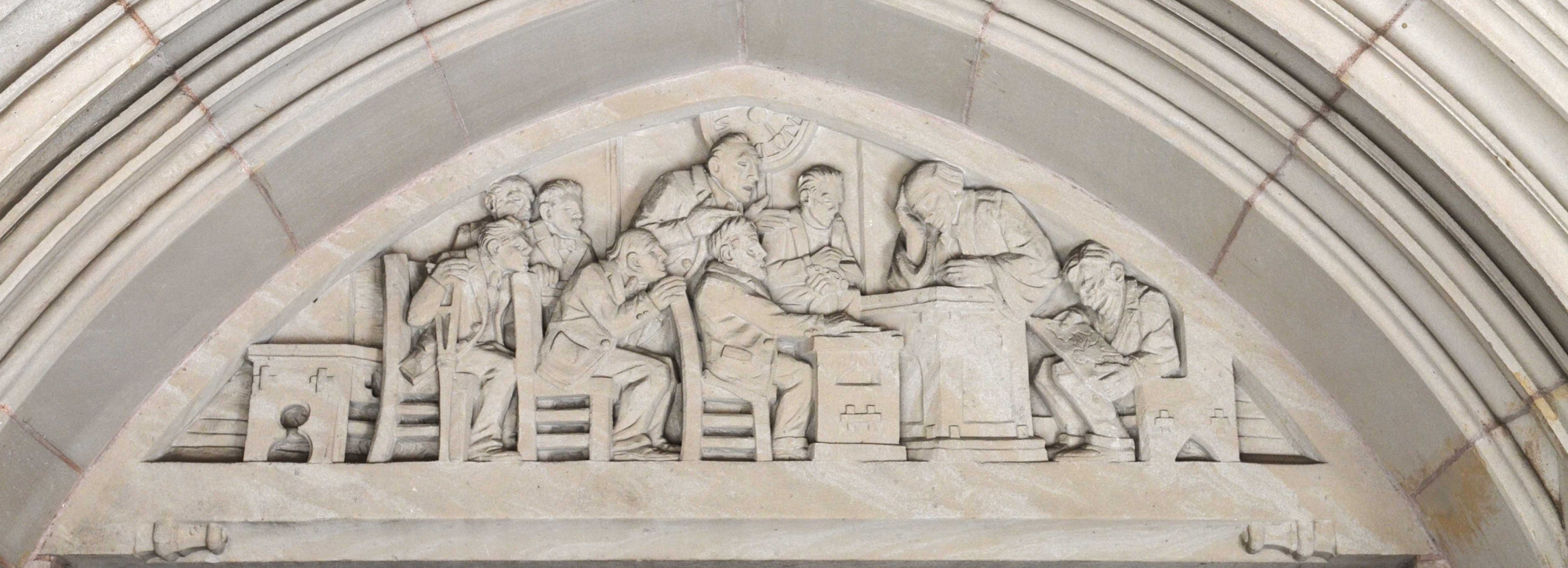Apply: Liman Law Fellowships
Apply: Liman Fellowships-in-Residence
Deadline for 2023–2024 Liman Law Fellowships: February 1, 2023
Yale Law School graduates and third-year students are eligible to apply.
Evaluation Criteria
Judith Resnik, Arthur Liman Professor of Law and Liman Center Founding Director, chairs the Liman Fellowship Selection Committee. Law Fellowship applications are reviewed for:
- experience using law to further the public interest in a variety of settings, including public service organizations, government service, education (including law school clinics), or the private sector;
- knowledge of topics related to the proposed project;
- ability to work with others, listen to communities, clients, colleagues, and potential adversaries, work creatively, and help support needed changes;
- academic and other accomplishments; and
- demonstrated commitment to public service.
The committee also evaluates proposed fellowship projects based on:
- the need for the proposed work and the host organization’s need for support;
- the applicant’s and host organization’s capacity to implement the project during the proposed time frame and/or to continue the work after the fellowship ends; and
- the host organization’s commitment to the applicant – or, if an applicant seeks to create a free-standing project, how that project would be supported.
Application Components
- Personal statement (500 words maximum)
Describe your experience with and commitment to public interest, public service, and/or human rights, aspirations for future work, and how the fellowship would help achieve your aspirations. - Proposal summary (1 paragraph)
Include where you will work and your project goals. - Proposal (3000 words maximum)
Applicants may design a project in partnership with a host organization or work on an organization’s existing project. Proposal instructions are provided below. - Statement: Other fellowships or public interest positions to which you have applied or will apply. If none, include an explanation, e.g. gap year, unusual geographic or project-specific need. Applying for external funding is not a requirement, but it is strongly encouraged.
- Résumé
- Unofficial law school transcript
Request here. - Two letters of recommendation
One from law school faculty and one from a supervisor or employer
Recommended: An additional letter of recommendation from law school faculty
- List of people consulted about your project
Before crafting your proposal, you must consult with people in your field. You are required to consult with the Liman Center Director before applying, and you are strongly encouraged to consult two to four Liman Fellows and/or others about your project as well. The Center Director can provide names of current or former Liman Fellows in your area of law. - Letter from the proposed host organization explaining:
- Organization’s purpose and function
- How your proposed work fits with the host organization’s activities
- Who will be your supervisor and what supervision you will receive
- What resources your host organization will provide to support your project (e.g., office space, computer, malpractice and/or other needed insurance)
- Potential for the organization to retain you as a full-time staff member after your fellowship year. NOTE: Post-fellowship retention is not required.
Incomplete applications will not be considered.
Project Proposal
Describe the following in no more than 3,000 words:
- The problem or need for the project
- The project goals and how you will meet them within the one-year fellowship period. Please include a timetable.
- Any background information required for context.
The project description must reflect how the project would engage with the relevant legal regime. The proposal should not be an essay akin to a substantial or supervised analytic writing, and you are not expected to have mastered your project’s area of law. Rather, the proposal should explain how you hope to use or change the relevant law or otherwise contribute to the human rights or well-being of others.
The proposal should also provide sufficient legal, historical, and factual context for the Committee to understand the need to be addressed, the nature of the proposed work, and the project’s planned impact.
How to Submit Applications
Submit applications online through the Yale Student Grants Database (CommunityForce).
Questions
Contact Liman Center Director Jennifer Taylor.
Application Period for 2023–2024 Fellowships-in-Residence: Fall 2022 through February 3, 2023
In recent years, the Liman Center has awarded a small number of in-residence Fellowships to graduates of Yale Law School and, on occasion, other law schools.
Evaluation Criteria
Judith Resnik, Arthur Liman Professor of Law and Liman Center Founding Director, chairs the Liman Fellowship Selection Committee. Fellowship-in-Residence applications are reviewed for:
- experience using law to further the public interest in a variety of settings, including public service organizations, government service, education (including law school clinics), or the private sector;
- knowledge of topics related to the proposed research topics or projects;
- ability to work with others, listen to communities, clients, colleagues, and potential adversaries, and work creatively;
- interest in working in relationship with the Liman Center and Yale Law School and its clinical programs;
- academic accomplishments, post-law school experience, and other qualifications; and
- if applicable, the proposed collaboration with other YLS centers or clinics, or outside organizations.
Application Components
- Cover letter
Describe your background and how this work relates to your longer-term plans - Résumé
- Law school transcript
- Writing Sample
- Three letters of recommendation
Two from law school faculty and one from a supervisor or employer
Incomplete applications will not be considered.
How to Submit Applications
Please do not apply for a Liman Fellowship-in-Residence using the YLS online portal. Instead, send any questions and your application materials to Liman Center Director Jennifer Taylor at Jennifer.taylor@yale.edu.
